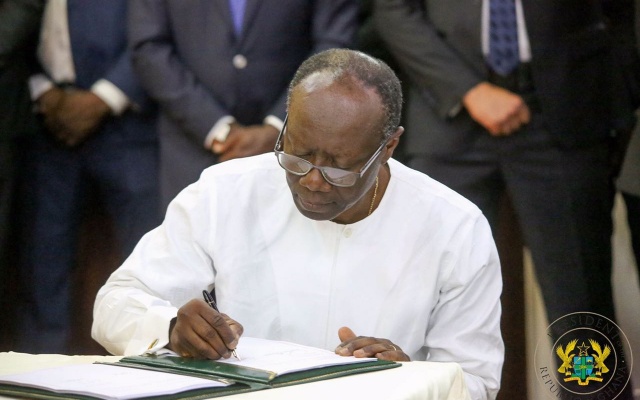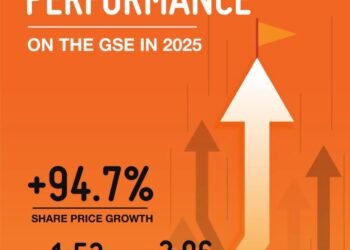Since the beginning of the year, the government has introduced series of new taxes and hiked a number of existing tax rates as evident in the 2021 budget statement.
Given the newly imposed taxes, businesses or corporate institutions are broadly affected by the 1% COVID-19 Health Recovery Levy as well as the targeted financial sector clean up levy of 5% on the profit before tax of banks.
The current tax regime is making it almost impossible for businesses to build capital for an accelerated growth and to contribute to the growth of the economy more substantively.
At the current tax rate of 25 per cent charge on corporate organizations, and in addition to these newly introduced taxes, the rate of job creation will be affected. As such, this environment does not make it conducive for business expansion.
As rightly indicated by one of the United States Senators in some time past, “Some African tax rates are the highest in the world. In Tanzania, the 30% tax rate kicks in US$475 of income. Plus, they have a 20% of VAT… Those high tax rates make it impossible to build capital in those countries. So, nothing gets built, not factories, not roads…
“A company like Nike, for instance can’t put a factory in one of these countries, because of the oppressive tax rates. Taxes have killed any possibilities of economic development. And that leaves them completely at the mercy of charity and loans… Taxes can’t raise any money if they kill the economies.”
Specifically, the 5% financial sector clean up levy is likely to be passed on through charges on deposits and interest on loans. Thus, while the BoG has reduced the policy rate by 100 basis points, this may only minimally reflect in the reduction of interest on loans to businesses.
Moreover, with majority of businesses still struggling to find their feet due to the economic fallout from the COVID-19 pandemic, while others are unable to even break even, this leaves much to be desired in getting businesses to assume their role of job creation and increase employment.
Currently, Ghana’s tax profile shows a personal income tax from 0 per cent and 30 per cent, non-residents pay a flat tax rate of 25 per cent, according to PwC. Also, a general corporate tax rate of 25 per cent, according to GRA, a Value-Added Tax of 12.5 per cent, and consumption taxes other than VAT at 29% in 2018, according to the OECD’s taxfoundation.org.
Personal Income Tax Rates
| Chargeable income (GHS) | Rate of Tax |
| First 3,828 | 0% |
| Next 1,200 | 5% |
| Next 1,440 | 10% |
| Next 36,000 | 17.5% |
| Next 197,532 | 25% |
| Exceeding 240,000 | 30% |
Current tax regime is disruptive to low wage earners
Also, other new levies and taxes imposed more directly affect low wage earners of the country. These include the imposition of an Energy Sector Levy of 20 pesewas per litre of petrol/diesel and 18 pesewas per kg on Liquefied Petroleum Gas (LPG); the imposition of a Sanitation and Pollution Levy of 10 pesewas per litre of petrol and diesel respectively.
With a very huge percentage of the population earning very low wages, these new taxes are disrupting the living conditions of such individuals. Only two months into the imposition of these taxes and already citizens appear overly burdened as a result of the increase in prices of goods and services.
These new taxes are indicative of reduced purchasing power of consumers, as their disposable incomes have been affected and the value of money at which goods and services are purchased have also fallen. Transport fares have increased by 13% with only little adjustment to the minimum wage (6%) of workers. The ordinary Ghanaian is likely to fall into deep poverty as a result of this tax hike.
The negative cumulative effect of these taxes notwithstanding, the government cannot hope to tax its way into paying off its outstanding debts. No matter how huge the taxes, they are just not enough, due to the reasons aforementioned. This explains why the government has had to borrow more to finance infrastructure, and other worthwhile capital investments since the role of the private sector towards economic development has not been robust. And this is largely due to excessively high tax charges.
Among other things, the government through the Ghana Revenue Authority is aiming to resurrect dormant taxes such as the rent tax, while failing to retire some special levies and taxes introduced years ago, and which have already served their purpose such as the special petroleum tax, etc.
On the whole, the imposition of these taxes came as a ‘reflex’ response to unsustainably high debt amortization, high interest payments, and fiscal pressures to allow room for the country to navigate through the economic fallout of the pandemic.
While these taxes have been ‘decorated’ as though they represent the silver bullet to getting the economy back on a sustainable growth path, thus warranting their imposition, this is far from expected.
Unsustainable debt cannot be solved with increasing tax rates
The government should consider innovative ways of financing including increasing the tax base, cutting down unwarranted expenditure, encouraging public-private partnerships, while also minimizing corrupt practices in the government.
As highlighted, the problem that needs to be addressed is government’s increasing appetite for borrowing and the institutional inefficiencies of the revenue authorities. Ghana’s tax revenue collection to GDP is below 15 per cent, thus implying less tax revenue generated to meet government expenditures.
It is no rocket science to know that the gap is caused less by low tax rates, to warrant an increment in taxes.
As at year-end 2020, the country’s debt-to-GDP ratio had ballooned beyond the sustainable threshold of 70 per cent (76.1%). Meanwhile, recent statistics reveal that the country’s debt-to-GDP has slowed to 70.2 per cent, albeit with debt stock rising to GHS304.6 billion. In 2021 alone, the government has projected committing over 40 per cent of its revenue generated into interest payments and amortization.
On the back of this, the President recently campaigned for the total cancellation of debt for African countries. While debt forgiveness may be welcoming, it does not take long for African countries to return to creditor countries for another round of debt forgiveness.
If the President’s call is anything to go by, then in just about 11 years after Ghana was classified as a highly indebted poor country (HIPC), at which time the country’s debt was cancelled, this will mark another.
With the current practice of burdening citizens with taxes to repay loans, this only suggests to foreign creditors that we have the capacity to pay back our debts and so qualify for the next loan arrangements.
By this, the country only initiates a vicious cycle of debt non-repayment into perpetuity, while delaying the desired sustainable growth of the economy.























